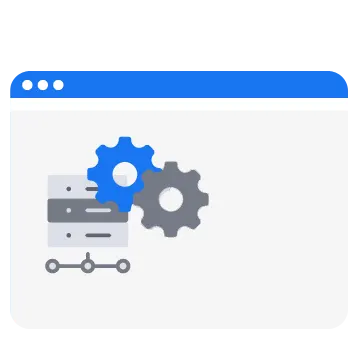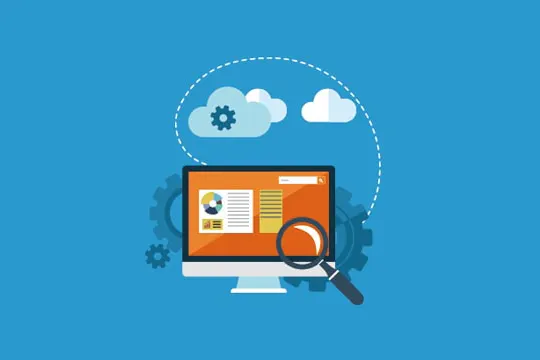INDEX
Index Coverage
Check index coverage for errors warnings and fix them. Identify crawl issues and optimize the pages if required.
Robots.txt
Create/Optimize robots.txt with clear instructions for web crawlers to index or not index parts of website.
Sitemaps
Create and submit XML sitemaps for URL's, Video and Images with priority, crawl frequency etc. and check for crawl status. Fix any issues in sitemap to make it accessible to Google.
Removals
Submit removal request for outdated, irrelevant or pages which hurt rankings.
ENHANCEMENTS
Core Web Vitals
Audit for core web vitals and identify poor performing pages on Desktop and mobile to fix the issues. Our technical SEO experts will optimize Largest Contentful Paint (LCP) for better user experience and search rankings.
Mobile Usability
Our technical SEO team will work with designers to analyze site for mobile usability and optimize text, clickable elements, wider content..
Breadcrumbs & FAQ
Check for any missing fields or elements in breadcrumbs, FAQ and fix it if any.
SECURITY & MANUAL ACTIONS
Manual actions
Check for any manual actions on website such as bad links, spam etc. that might prevent it from appearing in Google Search and fix it.
SITE ARCHITECTURE
Security issues
Our technical SEO experts will check for security issues, vulnerability and malware and work with developers to fix any security issues.
URL Parameters /Canonical /Duplicate Content
Setup URL parameters to avoid canonical and duplicate issues. This will avoid crawling duplicate pages.
Links
Audit for spammy backlinks and irrelevant links. Check internal and external links and take action if needed.
301 & 404 redirects
Create 404 error pages (page not found) and redirect 301(permanent redirect) respectively.
Site Structure
Analyze and optimize URLs (https://www.abc.com/cat25/prod1145 to https://www.abc.com/pediatric-dentistry) and navigation (bread crumbs) for latest SEO standards.
Orphan Pages
Identify and remove standalone/orphan pages.
ONPAGE SEO OPTIMIZATION
Page level SEO optimization is the most important factor as it paves way for crawlers to find, crawl, index and DISPLAY web pages on SERP's. Each and every element of a web page should be optimized for the latest SEO standards. Page level optimization involves Meta content (from the start) to the end of content on the page.
WCAG Compliance
Optimize pages for WCAG (Web Content Accessibility Guidelines) accessibility guidelines.
Meta Content Creation/Optimization
Create; optimize Meta content (Title/Description) with targeted keywords.
FB & Twitter Cards (OGP)
Optimize Facebook & Twitter uses OGP (open Graph Protocol) tags to build the text, image, and title of shared content. OGP tags control the posts which appear on Facebook and Twitter.
Keyword Density
Optimize content for the optimum keyword density.
Schema Integration
Integrate Schema (Rich Text) for page elements such as ratings, reviews, Industry, Person, Profession etc. Schema integration is the vital part of onpage SEO optimization as it is an universal code for all search engines to identify the web page element.
Header Tag Creation/Optimization
Create/Optimize H1-H2 tags by including targeted keywords.
Content optimization
Eliminate duplicate content, thin content and optimize content with rich keywords.
Image optimization
Optimize images with appropriate alt tags.
Multimedia optimization
Optimize multimedia (video, presentation etc.) with the right tags and keywords.
Outbound Link Optimization
Optimize outbound link with respective no-follow tags.
ADVANCED ANALYTICS
Integrating Google Analytics on a website sounds simple as adding a piece of tracking code to pages. But to get realistic actionable insights, it has to be configured with Goals, Funnels, E-commerce Tracking and Dashboards. SIM's Google analytics certified experts will analyze the business and setup advanced analytics features.
Setting Up Goals
Our analytic experts will analyze the website to understand business goals. We identify the desired actions and value of those actions performed by a visitor. The list of Goals depends on the nature of the business which may include the following
- Membership Signup
- Contact Form
- Request Quote
- Newsletter Signup
- Social Media Likes/Shares
- Watching a Video
- Placing an order.
E-commerce Tracking & Funnel Setup
We setup funnels to track buyer persona. E-commerce tracking in Google Analytics is an extremely powerful reporting tool that not only gets information about the purchased products but provides with actionable insights on how to increase sales.
A goal funnel gives a clear visualization on the different steps a visitor needs to experience in order to achieve a specific goal. The actual procedure being structured by the goal funnel helps to identify the strong and weak areas where a visitor performs the desired action. This helps to determine if the user is dropping on the way to a desired action on site which can be fixed to boost conversion rate and revenue.


